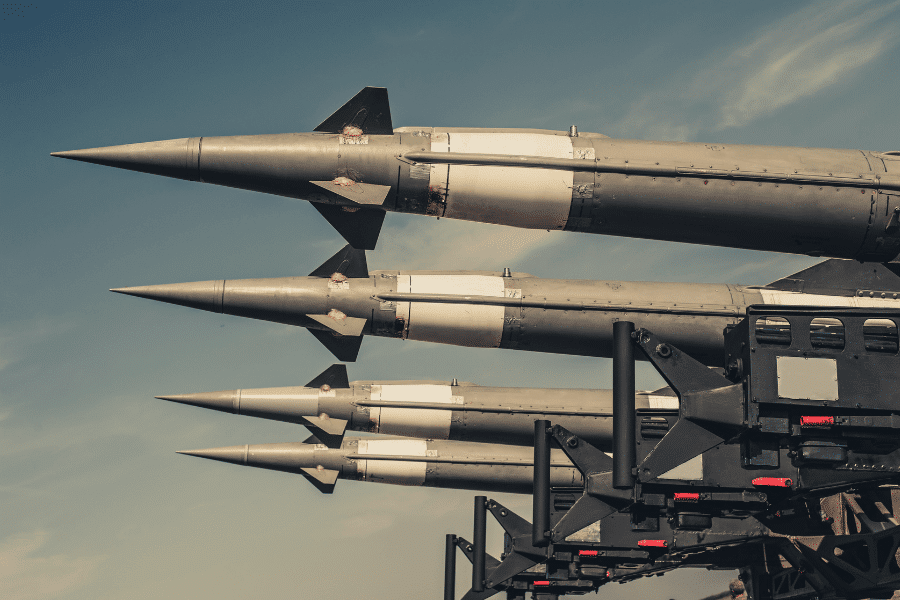
by Bernd Debusmann | 14 May 2024 | Science, Technology
AI is already transforming our lives. Should we depend on it or fear it? A missile defense system. (Credit: guruXOOXGetty Images) This article was produced exclusively for News Decoder’s global news service. It is through articles like this that News Decoder strives...

by Christine Keilholz | 21 Feb 2024 | Decoder Replay, History, Politics
The idea behind the North Atlantic Treaty Organization is that an attack on one is an attack on all. But is that only for those who can pay? The 30 member flags and large steel NATO Star sculpture at the main entrance of the North Atlantic Treaty Organization (NATO)...

by John West | 23 Jun 2023 | Asia, Decoders, Educators' Catalog, Japan, World
Japan remains a global economic powerhouse and is becoming an ever closer political partner of the West. People walk at a pedestrian crossing in Ginza shopping district in Tokyo, Japan, 31 March 2023. (AP Photo/Eugene Hoshiko) This article was produced exclusively...
ND correspondent and Asia specialist John West takes students to Japan in this Decoder explaining the island nation’s growing geopolitical importance and evolving defense strategy. Ranked the 17th-most democratic country in the world ahead of both the United States and France, Japan remains a key Western ally in a region fraught with tension.
Exercise: Geography has always played a significant role in the founding of civilizations and countries, shaping a nation’s economy and security. Launch a class discussion about how Japan’s geographic location and topography may have influenced the developments described in the article. Then, have students brainstorm how your country’s own geographic location (and geographic features like mountains, water sources, etc.) affects its role and influence on a world stage. This exercise is particularly well-suited to be a complementary lesson after students learn about the conditions of Japan’s surrender after World War II, highlighting the lasting effects of history in the present day.

by Tira Shubart | 1 Mar 2023 | Science, Space, Technology
Many of the more than five thousand satellites orbiting the earth are capable of producing high-resolution images. International agreements aren’t as clear. A U.S. Air Force U-2 pilot looks down at a suspected Chinese surveillance balloon as it hovers over the...

by Tira Shubart | 8 Nov 2022 | Educators' Catalog, Russia, Space, Technology, Ukraine
Despite conflicts on Earth, satellites orbit in peace. But use of Elon Musk’s Starlink to aid Ukraine has Russia looking to the sky with hostile eyes. A rocket booster carrying three Gonets-M satellites and the first Skif-D satellite of the Sfera programme lifts...
While all kinds of international conflicts occur on the ground, up in space things have been pretty peaceful. We depend on peace in the skies because such things as social media, multiplayer video games, Google classrooms and Zoom sessions rely on satellites bouncing signals across the earth. Correspondent Tira Shubart tells us why tensions on the ground in Ukraine could disturb the tacit and explicit agreements over satellites in the sky.
Exercise: Let’s imagine that each student has been hired to draw up an international agreement to govern and protect satellites that need to cross the skies over international borders. What are the five most important considerations that would have to be included in this treaty? Some things to consider are: The citizens in every country want fast and reliable Internet; people want their privacy protected; and countries are concerned about the possible military use of satellites.





